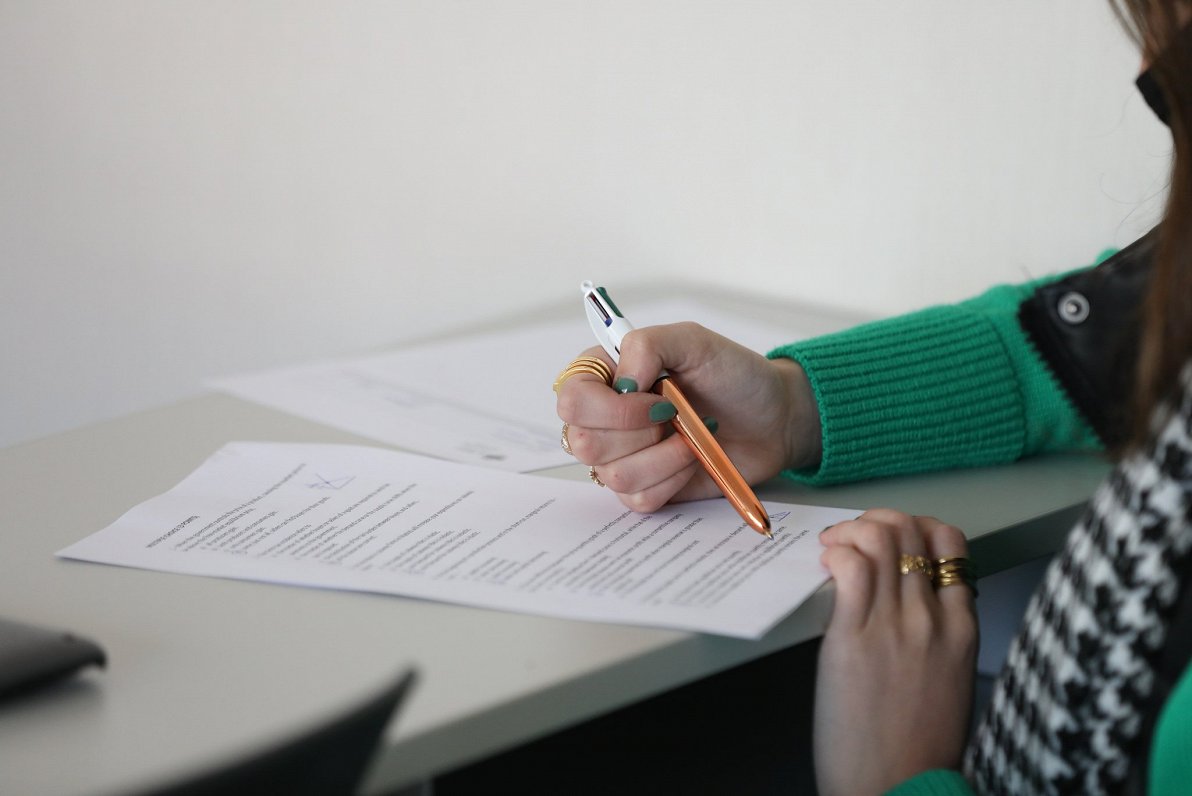All non-citizens (nepilsoņi, i.e, former Soviet Union residents without the citizenship of Latvia or any other state) living in Latvia who are staying here permanently and have not yet confirmed Latvian language skills will have to do so next year.
“Until now, the law did not foresee requesting Latvian language knowledge when issuing permanent residence permits for non-citizens. Our latest estimates show that these are 25 000 people," said Madara Puķe, spokeswoman for the Office for Citizenship and Migration Affairs (PMLP).
They also include some people who had Latvian citizenship before, but dropped it in favor of citizenship of the Russian Federation, but who continued to live in Latvia. It is not permitted to hold dual Latvian-Russian citizenship. The people who will have to take and pass the test are asked to apply in good time.
The PMLP receives a lot of questions, but the documents needed to apply for a new residence permit have so far been received very little. “Looking at application statistics, less than 1% [..] of all these people have submitted at the moment,” said Puķe.
Failure to meet the new requirements will have consequences.
“[They] can apply for a temporary residence permit if they are here in terms of employment, studies, or family union,” explained Puķe. “If none of these aspects comes true, then the person is illegally staying in Latvia. And that means leaving Latvia within 90 days.”
The tests are carried out in accordance with an action plan and timetable developed by the State Educational Content Centre (VISC), but it is already clear that this will require both extra money and human resources.
“If we have regular funding and human resources for approximately 5,000 test takers per year, and if we now have some 18,000 more, it is logical that without additional resources it is not possible,” said Anta Lazareva, head of the language testing division of VISC. “The exam will, of course, be the same as for everyone, with the same requirements that match the A2 [language learning] level.”
The Office of Citizenship and Migration also draws attention to the need for both staff and money to meet these requirements.
“At the moment, we issue around 50,000 documents a year, and take 50,000 residence permit decisions. So another 25,000 will come to us next year,” Puķe said. “We have asked for 48 new vacancies so that this process can be carried out successfully, but the new government will have to decide on this.”
Children who have not yet reached the age of 15 and people over 75 years old will be automatically exempted from the test, as well as those who have obtained an education in Latvian, have passed a centralized examination in Latvian, or who are to be exempt due to medical problems. A specialist's note is required in that case.
The residency requirements of other third-country nationals are unaffected. Full details of current rules and regulations are available at the PMLP website and from their numerous offices across the country: https://www.pmlp.gov.lv/en.
'Non-citizens' are generally Soviet-era migrants to Latvia and their descendants who have decided for whatever reason against acquiring Latvian citizenship by naturalization – a time-consuming but fairly straightforward process that requires basic proficiency in the Latvian language and some general knowledge of Latvian history and the country's constitution as well as the ability to recite the national anthem.
Since the Russian invasion of Ukraine, the interest of Latvia's permanent residents in acquiring Latvian citizenship via naturalization has increased. Statistics compiled by PMLP show that in 2021, on average around 45-50 naturalization applications were received in one month. In January and February 2022, these figures were 52 and 54. In March, however, the number doubled – 105 applications were received, 98 in April, 83 in May.
PMLP said that people understand that the naturalization process is time-consuming and requires knowledge of Latvian, but the interest in the naturalization process is much higher than before the war began.
Around 150,000 persons have acquired Latvian citizenship via naturalization since that route was opened in 1995.
From January 1, 2020 children born in Latvia have been eligible to receive either Latvian citizenship or the citizenship of another country if both parents agree on that other citizenship. The default will be Latvian citizenship for all children born to Latvia-resident parents.




























